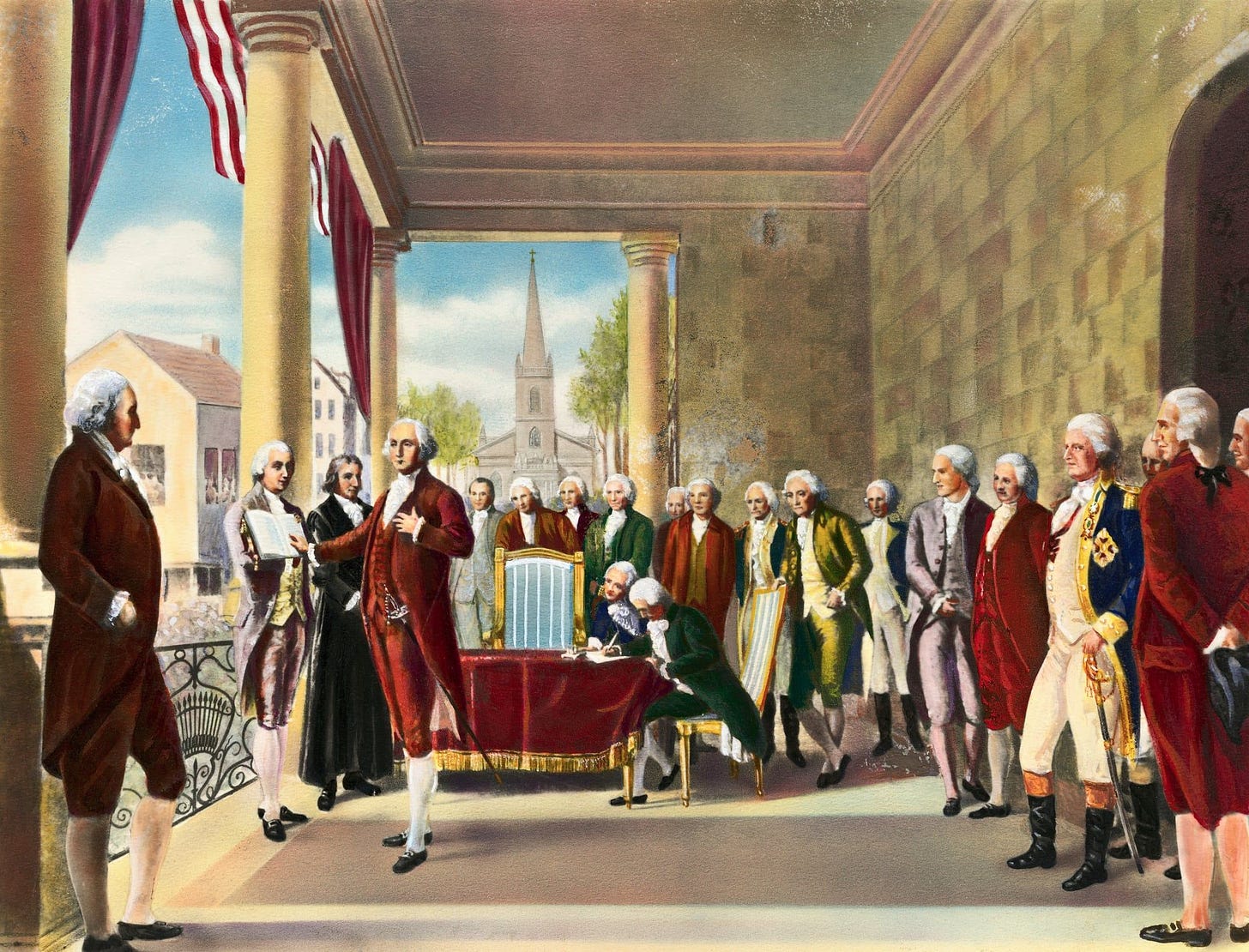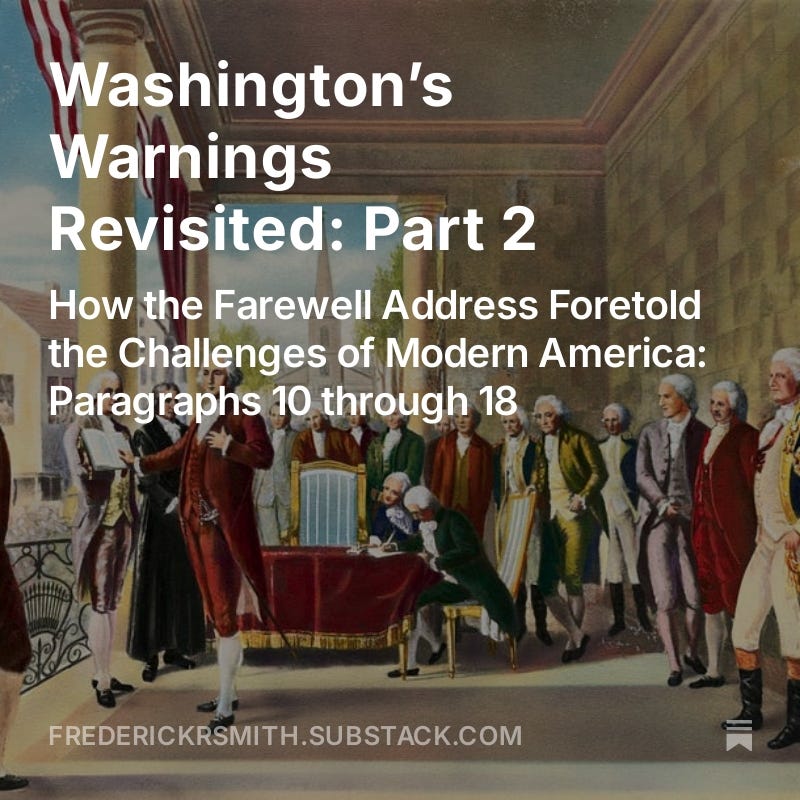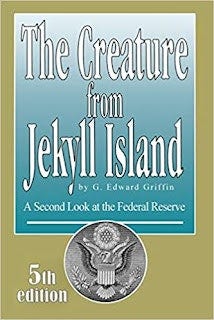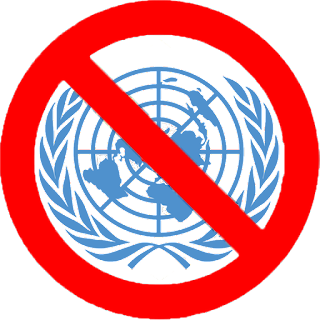Washington’s Warnings Revisited: Part 2
How the Farewell Address Foretold the Challenges of Modern America: Paragraphs 10 through 18

It is substantially true that virtue or morality is a necessary spring of popular government. The rule indeed extends with more or less force to every species of free government. Who that is a sincere friend to it can look with indifference upon attempts to shake the foundation of the fabric? Promote, then, as an object of primary importance, institutions for the general diffusion of knowledge. In proportion as the structure of a government gives force to public opinion, it is essential that public opinion should be enlightened.
George Washinton, farewell address paragraph No. 10.
Words 7,089 | Read Time 33 min | Enjoy
Introduction
Welcome to Part Two’s in-depth look at George Washington’s Farewell Address. If you joined us in Part One, you read an in-depth look at paragraphs 1 through 9 as we explored Washington’s views on unity, the insidiousness of political factions, and the development of national identity. Now, as we move forward, we shall go into the succeeding parts of the address, unfolding the warnings of foreign entanglements taken by Washington, the need to keep independence in foreign policy, and what this piece of advice means in the present governance. The overall goal of this book-length treatise is to demystify the relevance of Washington’s words to the current political scene to comprehend better how his ideas still give us a window to see the folly of American “values” and foreign relations today.
Table of Contents
On this post’s online PC-based browser version, the Substack Table of Contents feature is to the left edge of this window on your device’s screen. Click on the “ladder” bar to open the TOC for easy navigation.
George Washington Farewell Address, September 19, 1796: Part 2 (paragraphs 10 through 18)
Paragraph 10 - Morality is a necessary spring of popular government
It is substantially true that virtue or morality is a necessary spring of popular government. The rule indeed extends with more or less force to every species of free government. Who that is a sincere friend to it can look with indifference upon attempts to shake the foundation of the fabric? Promote, then, as an object of primary importance, institutions for the general diffusion of knowledge. In proportion as the structure of a government gives force to public opinion, it is essential that public opinion should be enlightened.
Contemporary Rewrite
It is substantially true that virtue or morality is a necessary spring of popular government. In a republic, this principle ought to do more; it is, therefore, incumbent on us to pay every needful circumspection to the public mind and to avail ourselves of all those advantages which tend to fortify their rights and to facilitate interaction with the public voice in forming, personally, a better judgment. We will call them off by public institutions as they advance the diffusion of knowledge and counteract whatever partial endeavors local designing persons might use to misguide your judgment.
Today’s Reality
Morality is necessary for popular government, but that is only possible in a free society bridled by self-control. In today’s society, ideals of virtue and morality contrast with the events involved in contemporary governance. With information flying around in a millisecond and polarized views thrown around, there is almost always a lack of enlightened public opinion necessary for adequate discourse.
While social media platforms are powerful tools for sharing knowledge, they have also morphed into echo chambers where individuals reinforce their biases rather than engage in constructive dialogue. That raises serious questions about the role of a gaslighted public vs. a well-informed public, which is a cornerstone of any functioning republic.
It becomes all the more glaring: wild individualism, the pursuit of personal interests having taken over from a sense of cogent-mined commonwealth responsibility toward moral values. The shift to unfettered and lousy liberal views ensures political polarization. Meanwhile, a growing sloth sees foundations reduced a sense of entitlement, and party loyalty often supersedes the common good.
It leaves the institutions of knowledge and virtue gasping amidst sensationalism and division. The more their danger to the inseparable link between an enlightened public and a healthy republic has grown, the bigger the reminder that cogent principles should guide morals and opinion in society.
Paragraph 11 - Avoiding occasions of expense by cultivating peace
As a very important source of strength and security, cherish public credit. One method of preserving it is to use it as sparingly as possible, avoiding occasions of expense by cultivating peace, but remembering also that [some expenditure] to prepare for danger frequently prevent[s] much greater [expenses.] [At the same time, avoid going into] debt, not only by [budgeting wisely], but by [paying off debts from] unavoidable wars.... [It] is essential that you should practically bear in mind that towards the payment of debts there must be revenue; that to have revenue there must be taxes...
Contemporary Rewrite
Public credit is an essential source of strength and security and should be carefully preserved. It may be preserved by making wise and honest decisions about public spending, not unnaturally enhancing expenses, and taking too much private capital into public hands, which may disturb the peace. Prepare for a thrifty and frugal solution, and avoid debt by avoiding unnecessary expenses and discharging any debt that may arise from unavoidable war. To pay debts, there must be revenue; to obtain revenue, there must be taxes.
Today’s Reality
George Washington gave wise and farsighted counsel concerning the proper methods of handling public credit and national debt. He warned of the risk of having too much foreign debt and pressed for wise financial planning. Washington urged the nation to economize prudently, cut down on unnecessary expenditures, and always plan for the retirement of debt. Public credit was a “precious treasure” that was supposed to be fostered and preserved with prudent use as a factor in national security and strength. Yet, much about civil society and government today contrasts sharply with his guidance. Avoiding occasions of expense by cultivating peace is now an elusive goal.
In his message, Washington emphasized fiscal responsibility, urging for careful use of public credit and prioritizing peace to avoid unnecessary expenses. He recognized the economic impact of conflict and the long-term consequences of debt on national stability. Today, our society faces increasing national debt driven by global strife, social welfare spending, and short-term economic policies prioritizing growth over financial stability.
For example, the United States’ national debt has reached unprecedented levels of 35 trillion and counting. Rather than being an asset rarely used, public credit has become standard fare for financing government expenditures in everything from military engagements to healthcare and social security programs.
Another area where Washington’s message clashes with modern governance is the failure to prioritize debt repayment. He stressed that debt incurred in times of necessity, such as during unavoidable wars, should be repaid swiftly. However, contemporary society avoids or delays this responsibility again and again. Our crummy leaders kick the can down the road over and over. Budget deficits are financed through national loans, which, when re-rolled over, result in a borrowing spree that is rarely repaid. Government deficits keep persisting year after year, and while revenues are raised through taxes, this is barely sufficient to meet the recurring expenses and the increasing national debt. That is the cause of inflation.
Washington’s linkage between revenue and debt repayment also presents a significant point of divergence. He stated, “… towards the payment of debts, there must be revenue; that to have revenue, there must be taxes.” Modern governments, particularly in the United States, have frequently debated the necessity of tax increases, with some advocating for lower taxes to stimulate economic growth.
Where revenue is not forthcoming, debt repayment becomes a low priority, and deficit spending mounts further. This contrasts with Washington’s pragmatic advice, who realized taxes were unnecessary to maintain revenue and settle debts. Political resistance to raising taxes is evident in today’s pitiful parties.
The general economic philosophy of the time also differed from today’s. Washington called for careful saving and considered spending, cautioning against profligate money decisions. Today’s economy is based on consumerism, growth, and expansion, generally at the sacrifice of long-term financial prudence.
Government expenditures primarily focus on meeting immediate social needs and political imperatives without considering long-term debt accumulation. The credit market expansion has greatly magnified the practice of borrowing well beyond current income levels, both for individuals and governments.
In addition, Washington’s call for prudent financial management and peace contrasts with today’s increasingly complex and interconnected global economy. Governments, including the United States, face financial obligations extending far beyond their borders, with international trade agreements, foreign aid, and multinational corporations influencing fiscal policy in ways Washington could not have foreseen. This globalization of economics has led to a system where national debt and public credit are intertwined with global markets, making it far more difficult for modern governments to follow Washington’s advice to “avoid going into debt” and to “cultivate peace.” Welcome to the New World Order.
Paragraph 12 - Observe good faith and justice toward all nations
Observe good faith and justice toward all nations. Cultivate peace and harmony with all. Religion and morality enjoin this conduct. And can it be that good policy does not equally enjoin it? It will be worthy of a free, enlightened, and at no distant period a great nation to give to mankind the magnanimous and too novel example of a people always guided by an exalted justice and benevolence. Who can doubt that in the course of time and things the fruits of such a plan would richly repay any temporary advantages which might be lost by a steady adherence to it? Can it be that Providence has not connected the permanent felicity of a nation with its virtue? The experiment, at least, is recommended by every sentiment which ennobles human nature. Alas! is it rendered impossible by its vices?
Contemporary Rewrite
Practice honesty and fairness with all nations. Strive for peace and harmony with everyone. Religion and morality both demand this approach. Can good policy argue against it? A free, enlightened, and eventually great nation would set a noble and groundbreaking example by always being guided by high principles of justice and kindness. Who could doubt that, over time, the benefits of such a path would far outweigh any short-term losses that might come from sticking to it? Is it possible that Providence has not tied a nation’s lasting happiness to its virtue? At the very least, trying this approach is encouraged by everything that elevates human nature. Sadly, is it made impossible by humanity’s flaws?
Today’s Reality
Washington envisioned the United States ought to be just, fair, peaceful, and virtuous with other nations and its people. According to him, a free and enlightened nation can be a model of justice persuaded by moral principles, not by temporary gains. He would have wished good fortune to result from the pursuit of virtue to last for an extended period for the nation and humanity. However, the values dear to Washington contrast sharply with the majority aspects of the existing structure of contemporary society and governance, where the national interests are often pursued in competition with and through conflict with other nations, by self-interest rather than by magnanimity and moral excellence. To observe good faith and justice toward all nations is a long-lost art.
One of the basic tenets of Washington was cultivating peace and harmony with other nations based on openness and equity. He regarded this course as a duty and the most exciting policy. Nowadays, however, international relations are too frequently marked by the scramble for materials, armaments, and influence. Every country, at one time or another, looks out for itself and embarks on military conflicts, trade wars, and political manipulations that advance their interests rather than create a peaceful and harmonious world. His ideal of the nation, conducted by justice and benevolence, is far from today’s geopolitics, in which national security and economic advantage often override moral considerations.
The proliferation of military conflicts and interventions by global powers illustrates how far modern society has diverged from Washington’s vision. While he recognized the need for defense, he hoped peace would be cultivated wherever possible. In today’s world, many nations—including the United States—maintain a strong military presence around the globe and engage in conflicts often justified by strategic interests rather than the pursuit of lasting peace. These are far more dictated by the short-term gain in resource acquisition, furthering of political influence, or limiting the power of other nations than they are based on the long-term benefit the fostering of harmony and justice could bring.
Washington offered that a great nation was supposed to act as an example to the world, proving a nation could hold the “Balance of Power.” But let us be frank: in our contemporary world, the leaders of too many countries seem to be motivated not by the desire to set a good example for all people but rather by selfishness. Too often, power, money, and influence are placed ahead of moral examples. This is manifested in how countries respond to human rights and international diplomacy. Rather than leading with a spirit of cooperation and benevolence, far too many countries have become way more interested in maximizing their interests, even when those interests run counter to the well-being of the globe.
Perhaps one of the most significant conflicts with Washington’s message is his warning that a nation’s lasting happiness is tied to its virtue. In modern society, pursuing happiness is often equated with material wealth, consumerism, and individual success rather than common moral progress or national virtue. Justice, fairness, and peace are frequently sidelined in favor of political gain and personal advancement. The focus on material gain, driven by a global neo-capitalist system, often exacerbates inequality and undermines the moral fabric of society. The idea that virtue is essential for long-term national happiness seems lost in a world where short-term profits and individual success are prized above all else.
In Washington’s view, the experiment of building a virtuous nation was not only worth pursuing but was also recommended by “every sentiment which ennobles human nature.” He believed that human nature could rise to the challenge of building a society based on justice and benevolence. Yet, the intentionally dumbed-down modern society often doubts that such an experiment is possible. Cynicism about the capacity of nations or individuals to act selflessly has grown, fueled by the prevalence of corruption, greed, and injustice in many areas of public life. Washington’s hope that virtue would guide a nation’s actions seems far from the reality of today’s world, where self-interest and vice often dominate political and economic decisions.
Paragraph 13 - The nation which indulges toward another an habitual hatred or an habitual fondness is in some degree a slave
In the execution of such a plan nothing is more essential than that permanent, inveterate antipathies against particular nations and passionate attachments for others should be excluded, and that in place of them just and amicable feelings toward all should be cultivated. The nation which indulges toward another an habitual hatred or an habitual fondness is in some degree a slave. It is a slave to its animosity or to its affection, either of which is sufficient to lead it astray from its duty and its interest. Antipathy in one nation against another disposes each more readily to offer insult and injury, to lay hold of slight causes of umbrage, and to be haughty and intractable when accidental or trifling occasions of dispute occur.
Contemporary Rewrite
A passionate hatred can never be more than a very short-sighted policy. A continual and sincere attachment to another nation is one of the most surest guards against this error. It would induce us to promote the people’s welfare and wish to propagate their prosperity. It is a common rule that a nation habituated to a profound respect for another nation will soon find some political reason for desisting from conduct that would incur displeasure. The perpetual hostility makes it much more likely that one country will slight or injure another and then make a mountain out of a molehill, arrogant and obstructive when conciliation would quickly settle disputes that should never have occurred.
Today’s Reality
Contrary to Washington’s advice on avoiding profound resentment and immoderate love toward other nations, modern politics is marked by strategic alliances and rivalries. He added that nations consequently habituated to behold the palladium of their security in a foreign nation make nice discriminations concerning theirs. To the contrary, most countries, including the U.S., maintain rigid alliances and adversarial relationships, restricting diplomatic flexibility and often exacerbating global tensions. Indeed, the nation which indulges toward another an habitual hatred or an habitual fondness is in some degree a slave.
Another point greatly conflicting with Washington’s vision is the modern urge and push to promote “democracy” worldwide. The U.S. has repeatedly interfered with areas such as Central America in the 70s and, later, countries such as Iraq and Afghanistan, trying to force dopey democratic systems onto countries for which the local conditions are not yet right. These have often produced devastating blowback, including the rise of terrorist groups, civil war, and a long-term spiral into chaos, as has been seen in Iraq since the ouster of Saddam Hussein or in the collapse of Afghanistan after the U.S. pull-over.

Here, Washington’s warning against becoming a “slave” to ideology is particularly relevant. The U.S. and its allies became fixated on spreading “democracy” without particular concern for cultural, political, and religious intricacies. This further undermines their credibility because “democracy” is promoted in selected cases, while when strategically suitable, support is given to authoritarian regimes. The double standard this reflects has built up enormous resentment and results in the view that U.S. interventions have the goal of imperialism rather than liberation.
Paragraph 14 - The nation prompted by ill will and resentment sometimes impels to war the government contrary to the best calculations of policy
Hence frequent collisions, obstinate, envenomed, and bloody contests. The nation prompted by ill will and resentment sometimes impels to war the government contrary to the best calculations of policy. The government sometimes participates in the national propensity, and adopts through passion what reason would reject. At other times it makes the animosity of the nation subservient to projects of hostility, instigated by pride, ambition, and other sinister and pernicious motives. The peace often, sometimes perhaps the liberty, of nations has been the victim.
Contemporary Rewrite
There is constant friction, which stirs up hard, bitter, and violent conflict. The nation sometimes gets angry and resentful and carries the government into war against good policy. At other times, the government shares this national propensity, and emotional decisions occur which reason would reject. Or the government, with pride, ambition, or other vicious motives, may utilize the nation’s hostility as a calculated means for executing its designs for war. Hence, peace—and sometimes even the freedom of nations—becomes the casualty.
Today’s Reality
This warning by George Washington against using national animosity to dictate the course of government decisions is quite contrary to today’s political and international landscape. It is all about the nation prompted by ill will and resentment sometimes impels to war the government contrary to the best calculations of policy. Washington warns against emotion-driven government anger, pride, resentment-especially war. His perception thus seeks to underline rational decision-making and policy from deliberation in calculation and stability over the long run. Severe are the possible fruits of emotional policy-making, so this warning by Washington reminds us.
Quite the opposite is the case in today’s world. The ‘opposite’ of what was said has become a guiding force for political discourse, especially in today’s social media, instant communication, and lap dog legacy media. Sometimes, leaders immediately react to public anger or fears right after these occur, thus fanning the flames to their benefit. That directly contrasts Washington’s ideal with a government that should be a sure anchorage, tempering the public sentiment rather than amplifying it.

More precisely, what seems strikingly relevant is Washington’s concern about governments using national hostility for their ambitions impelled by pride and other self-serving motives. Today, more often than not, one can barely draw a line between the nation’s interest and political advantage. From interventionist foreign policy to escalating trade disputes and from populist rhetoric, the pursuit of political power and prestige can overshadow the deliberative, calculated decision-making to which Washington called.
Washington warned, too, that this emotional approach could threaten not just peace but liberty itself. In modern times, freedoms face canceling through expanded government powers during crises or through divisive and reactionary policies. Individual liberties become secondary considerations when governments act out of pride, ambition, or national fervor.
Whereas Washington’s vision did look to a government restrained by reason, today’s climate often succumbs to short-term emotional appeal at the expense of long-term stability and peace, entailing unforeseen consequences for domestic liberty and international relations.
Paragraph 15 - Passionate attachment of one nation for another produces a variety of evils
So, likewise, a passionate attachment of one nation for another produces a variety of evils. Sympathy for the favorite nation, facilitating the illusion of an imaginary common interest in cases where no real common interest exists, and infusing into one the enmities of the other, betrays the former into a participation in the quarrels and wars of the latter without adequate inducement or justification.
Contemporary Rewrite
Similarly, an overtly emotional attachment of one nation to another brings about many problems. Sympathy for the favored nation can create a false impression of shared interests, even when no real common interests exist. This attachment can also lead one nation to adopt the enemies of the other, dragging it into conflicts and wars without sufficient reason or justification.
Today’s Reality
George Washington’s warning about the dangers of a nation forming a passionate attachment to another directly contrasts with contemporary global politics, particularly in the context of the Ukraine war. Washington cautioned that emotional ties between nations could lead to an illusion of common interests where none truly exist, potentially leading one nation into the conflicts and rivalries of another without sufficient cause. The current Western response to the war in Ukraine illustrates how modern international relations can embody the very concerns Washington expressed centuries ago. Indeed, passionate attachment of one nation for another produces a variety of evils.
In the case of Ukraine, much of the Western world—particularly the U.S. and European nations—has rallied behind Ukraine in its struggle against Russian aggression. While there are legitimate reasons to support Ukraine, such as defending sovereignty and countering authoritarianism, Washington’s caution applies when sympathy for Ukraine leads to emotional, rather than strategic, decision-making. The passionate attachment many Western nations feel for Ukraine risks creating a false sense of shared national interest, even when those interests may not be directly aligned.
The U.S. and other nations have poured billions of dollars into military and financial support for Ukraine. While this support is framed as protecting “democratic” values, it could also be seen as falling into the trap Washington warned about—entering conflicts due to emotional and symbolic ties rather than clear, direct national interest. Some argue that the U.S., while sympathetic to Ukraine’s plight, does not have a strategic interest in escalating a conflict with Russia. Yet, attachment to Ukraine, driven by historical alliances and moral imperatives, has made it difficult for Western governments to remain neutral or measured in their responses.
Washington warned further against the danger of assuming, through passionate alliances, the enmities of another nation. In Ukraine’s case, Western powers have assumed that the country’s enmity with Russia has had wide-ranging geopolitical ramifications. Divisions have been deepened through the use of sanctions, military aid, and public attacks, perhaps even pulling countries further into a conflict. While it may be merited to support Ukraine, the increased emotional involvement with the Ukrainian cause raises the stakes of war escalation that includes nations in a manner for which Washington would have likely disincentivized due to a lack of direct provocation or gain on behalf of those who enter the conflict.
Yet, in actual practice, international politics today can seldom distinguish even the clear-sighted pursuit of concrete interests from moral imperatives and emotional alliances. Even if the West’s policy regarding Ukraine corresponds to any idea of freedom and “democracy,” Washington’s advice does call for remembering that emotional links among independent states sometimes result in counterproductive consequences. Above all, steps taken with passion rather than sober calculation could lead to more extended conflicts and higher involvement quagmires, leading to additional global instability.
Paragraph 16 - laudable zeal for public good the base or foolish compliances of ambition, corruption, or infatuation
It leads also to concessions to the favorite nation of privileges denied to others, which is apt doubly to injure the nation making the concessions by unnecessarily parting with what ought to have been retained, and by exciting jealousy, ill will, and a disposition to retaliate in the parties from whom equal privileges are withheld; and it gives to ambitious, corrupted, or deluded citizens (who devote themselves to the favorite nation) facility to betray or sacrifice the interests of their own country without odium, sometimes even with popularity, gilding with the appearances of a virtuous sense of obligation, a commendable deference for public opinion, or a laudable zeal for public good [is] the base or foolish compliances of ambition, corruption, or infatuation.
Contemporary Rewrite
The penchant for overt attachment also gives special privileges to the favored nation while denied to others. That often harms the country by granting these concessions in two ways: by giving up precious resources and stirring jealousy, resentment, and a desire for retaliation from the nations that don’t receive the same treatment. It also makes it easier for ambitious, corrupt, or misguided citizens, who align themselves with the favored nation, to betray or harm their own country’s interests without facing criticism—sometimes even gaining popularity. They disguise their actions under the appearance of duty, respect for public opinion, or a commitment to the public good. Corruption, ambition, or foolishness drive behavior.
Today’s Reality
George Washington’s warning about the dangers of favoring one nation over others and the harmful effects of special privileges resonates sharply in today’s global political and economic landscape, particularly when viewed through the lens of the vast amounts of foreign aid and financial assistance the U.S. provides annually. The laudable zeal for public good [is] the base or foolish compliances of ambition, corruption, or infatuation. Washington cautioned that granting privileges to a favored nation—concessions that are withheld from others—leads to two key dangers: it weakens the country making the concessions and fosters resentment and jealousy among other nations. Today, these principles find relevance in the U.S.’s practice of distributing massive amounts of fiat money, or government-backed currency, to countries worldwide. This practice often reflects Washington’s concerns and demonstrates how far the modern foreign policy has diverged from his ideals.
The United States has spent billions of dollars annually in foreign aid apportioned to nations for strategic, political, or humanitarian reasons. While this can be justified when there is an urgent need or a national security interest, such policy carries the risks pinpointed by Washington when it is not judiciously balanced. In light of its policy of extending financial assistance on a selective basis, the U.S. risks creating favored relationships with specific countries, usually for political or ideological motives, while alienating other countries not included under such agreements. This can breed resentment among excluded or overlooked countries, straining diplomatic relations and undermining long-term global stability.
The gross financial support the U.S. gives, for example, to countries like Ukraine, though sometimes justified by geopolitical interests, stirs anger and jealousy in those countries that receive no such favorable levels. In his view, such selective favoritism is expensive on a double front: firstly, by giving away resources that could otherwise have been better retained or utilized more effectively at home, and secondly, by arousing adversarial responses from other countries. The effects appear to spill over into frayed alliances, trade disputes, and punitive policies on the part of countries that feel slighted by U.S. favoritism. The architects of fear perpetuate their pungent policies.

In addition, Washington’s text speaks to the internal dangers of these policies. He warned that favoring another nation encourages ambitious or corrupt individuals who align themselves with these foreign interests against their country’s long-term well-being. Nowadays, such politicians, lobbyists, and business figures generally support extensive foreign aid or military assistance in the name of national interests or humanitarian obligations when, as a rule, it may serve their personal interests or lucrative businesses. Rhetoric makes such choices appear virtuous, patriotic, or for the benefit of global good. While in reality, these choices are driven by other kinds of motives. Therefore, this support for favored nations can serve as a conduit to enhance personal or political careers while masking the costs to the U.S. itself.
The sheer amount of fiat money distributed to other nations annually raises questions about the long-term consequences for the U.S. economy. Washington’s concern about parting with resources unnecessarily has clear relevance here. The U.S., already burdened with significant national debt, continues to issue massive amounts of fiat money to fund foreign aid programs. This money, created without backing by tangible assets, inflates the national debt and debases the dollar’s stability. While some of this aid may be strategic, there is an argument to be made that Washington’s call for prudence—retaining resources for the nation’s own needs—could apply to the modern practice of large-scale foreign aid, mainly when it stretches beyond clear national interest.
Finally, Washington’s warning about the risk of “ambitious, corrupted, or deluded citizens” is relevant today as we consider that special interest groups, corporations, or political figures often drive the decisions concerning foreign aid because such special interests have much to gain from such policies. They may promote increased financial aid to particular countries not based on a legitimate concern for the public good but on the premise that it furthers their economic or political interests. As Washington explained, such a display of conduct can betray national interests but is so frequently cloaked under the clothes of duty, morality, and even international responsibility.
The conclusion of such a critique from Washington about U.S. current foreign aid practices is that it greatly favors other nations with the dangers of unnecessary concessions. The large sums of fiat money doled out worldwide reflect his fears of weakened national resources, international resentment, and foreign policy manipulation by people for private ends. Washington appealed to his audience to act with restraint, carefully weighing national interests and avoiding emotional or disproportionately sympathetic alliances. But it is an extraordinarily timely warning for today’s interconnected, politically complex world.
Paragraph 17 - Avenues to foreign influence in innumerable ways, such attachments are particularly alarming to the truly enlightened and independent patriot
As avenues to foreign influence in innumerable ways, such attachments are particularly alarming to the truly enlightened and independent patriot. How many opportunities do they afford to tamper with domestic factions, to practice the arts of seduction, to mislead public opinion, to influence or awe the public councils! Such an attachment of a small or weak toward a great and powerful nation dooms the former to be the satellite of the latter. Against the insidious wiles of foreign influence (I conjure you to believe me, fellow-citizens) the jealousy of a free people ought to be constantly awake, since history and experience prove that foreign influence is one of the most baneful foes of republican government. But that jealousy, to be useful, must be impartial, else it becomes the instrument of the very influence to be avoided, instead of a defense against it. Excessive partiality for one foreign nation and excessive dislike of another cause those whom they actuate to see danger only on one side, and serve to veil and even second the arts of influence on the other. Real patriots who may resist the intrigues of the favorite are liable to become suspected and odious, while its tools and dupes usurp the applause and confidence of the people to surrender their interests.
Contemporary Rewrite
Attachment to foreign nations is particularly concerning for the genuinely informed and independent patriot: it opens countless domestic political interference opportunities whereby foreign powers can manipulate internal factions, sway public opinion, and influence or intimidate government decisions. When a smaller or weaker nation becomes overly attached to a larger, more powerful one, it risks becoming little more than a follower. I urge you, fellow citizens, to recognize the dangers of foreign influence. History and experience show it is one of the greatest threats to a republican government. However, this vigilance must be impartial. If we are only suspicious of certain nations while unquestioningly favoring others, we risk enabling the foreign influence we aim to resist. Showing extreme favoritism for one foreign country and intense dislike for another can lead us to overlook dangers on one side while unwittingly allowing influence from the other. True patriots who stand against these manipulations may become distrusted or vilified. At the same time, those who are influenced or deceived by foreign interests gain praise and trust from the public, even as they sacrifice the nation’s well-being.
Today’s Reality
George Washington’s warning regarding foreign influence and the risks of partiality in international relations looks pretty vocal, ringing loudly in today’s political climate. The concern that blind attachment to foreign nations undermines the sovereignty of a country and threatens to make divisions within a nation finds reflection in contemporary debates, especially those about U.S. foreign aid and other forms of involvement in global affairs. Today, anyone who questions why America gives so much financial and political support to foreign countries faces demonization. Any person who raises perfectly valid questions concerning the role that foreign governments are playing in shaping American policy face the xenophobic mantra and is even referred to as a “Nazi” by liberal and neo-conservative elites alike. This rhetoric echoes the warnings out of Washington but, of course, shows just how far modern discourse has strayed from his vision. The avenues to foreign influence in innumerable ways, such attachments are particularly alarming to the truly enlightened and independent patriot.
Washington cautioned against forming excessive attachments to foreign nations, warning that such attachments create opportunities for foreign powers to interfere in domestic politics. Today, individuals who challenge the U.S.’s deep ties with certain foreign nations or question the enormous sums of foreign aid distributed annually face fierce criticism. Instead of engaging with their arguments, critics—especially in liberal and neo-conservative circles—accuse these individuals of being isolationist, racist, or even fascist. This tactic of vilification stifles meaningful debate and echoes Washington’s warning that true patriots who resist foreign intrigue could be “suspected and odious.” In contrast, those who succumb to foreign influence find solace under the sun of worship.
The case of U.S. aid to Ukraine provides a prime example. Patriotic Americans who question whether the massive amounts of money and military support directed toward these countries truly serve the U.S. national interest get the gaslight treatment. They face accusations of being Russian rolls and harboring ill will toward the people of these nations or, worse, branded as “hard-right” extremists. Instead of debating the merits constructively-such as whether U.S. foreign aid is warranted or serves the best interests of the American people-manifestations of abuse are frequent, branding these resisters anti-Semitic, xenophobic, and even neo-Nazis. The result is a furious backlash that circumvents legitimate scrutiny of U.S. foreign policy, putting one in an atmosphere where challenging government actions renders one disloyal or even dangerous.

This vitriol is not solely the domain of one liberal or neo-conservative ideology but rather an elite-driven dynamic from both sides of the political spectrum. Liberal internationalists, who generally favor globalism and a wide range of foreign aid programs, are quick to tar those who criticize them as xenophobic or out of step with the modern world. Neo-conservatives, whose focus is on military alliances and interventions, likewise demonize those who would argue for less U.S. engagement in regional conflicts. Put them all together, and the factions magnify the abuse, casting it at anyone who dares to question the wisdom of U.S. foreign policy or is impertinent enough to challenge the reigning consensus.
Washington’s warning that foreign influence could corrupt the public discourse is highly relevant in this context. He predicted that excessive favoritism toward foreign nations could distort public opinion and that those who resisted foreign influence might face demonization. Meanwhile, those who furthered foreign interests would get showered with praise. Today, many in the media and political establishment work to uphold a narrative that supporting foreign nations through financial aid and military assistance is always morally justified. Those who dissent are not allowed to engage in constructive dialogue but get discredited through inflammatory rhetoric, accused of opposing the public good, and face marginalization in the political conversation.
The most vicious accusations-that critics of foreign aid are something akin to Nazis-is a peculiarly pernicious kind of gaslighting. That is not an approach to stifle debate but entirely to delegitimize the dissenters by linking them with the most hateful ideologies of modern times. Such is little about debating the merits and defects of U.S. foreign aid and everything to do with making opposition morally indefensible. By deploying this tactic, the arguer distracts attention from the authentic questions of whether such policies are consonant with the U.S. interest or whether the foreign aid truly serves the apparent beneficiaries in their interest over the long term. They make the conversation about morality and identity rather than policy.
It is as relevant today as it was over two centuries ago that George Washington warned against blind attachments to foreign nations and the vilifying of patriots who would question the same relationships. In the current political climate, those raising legitimate concerns regarding foreign aid and foreign other words, today, anyone raising legitimate concerns about foreign aid and foreign influence faces accusations of being xenophobic, indeed even an extremist. That is the approach of both liberal and neo-conservative elites, one which stifles debate and opens the doors to foreign interventions. The lesson from Washington’s counsel of watchfulness and moderation in the face of perils of foreign entanglement recalls the open, rational conduct of discourse that seems ever more elusive in today’s putrid polity.
Paragraph 18 - Extending our commercial relations to have with them as little political connection as possible
The great rule of conduct for us in regard to foreign nations is, in extending our commercial relations to have with them as little political connection as possible. So far as we have already formed engagements let them be fulfilled with perfect good faith. Here let us stop.
Contemporary Rewrite
The best approach for dealing with foreign nations is to focus on expanding our trade relationships while keeping political ties to a minimum. Our commitments should be honored with complete integrity, but we should avoid forming new political alliances. Let this be our limit.
Today’s Reality
George Washington’s warning of political entanglements with other nations is in great contrast to the U.S. foreign policy of today. In his Farewell Address, Washington urged the young nation to extend its commercial relations but reduce political ones, believing that more significant alliances with foreign nations would breed unnecessary conflict. By great contrast, today, the U.S. is deeply enmeshed with world politics and, quite regularly, the vortex of military alliances and interventions abroad, contradicting what Washington had ever idealized. The need in extending our commercial relations to have with them as little political connection as possible implodes due to today’s alt-reality.
With a keen understanding of the importance of trade, Washington cautioned against political commitments that could entangle the nation in conflicts not aligned with its interests. His advice was wise and practical: The nation should honor its existing commitments but refrain from forming new political alliances. This contrasts with the United States’ current array of military partnerships and interventions, from NATO to the wars in Iraq and Afghanistan. What we see is, in reality, nothing more than a Flim Flam operation.

Where trade and politics interlink, it also constitutes a break from Washington’s ideal. Most contemporary trade agreements have political or military commitments, forming the bases of convoluted relationships such as the U.S.-Saudi Arabia alliance. These complexities create dependencies, warned against by Washington, carrying a high risk of entangling America in conflicts not in her best interest.
Ultimately, the contrast between Washington’s prudent advice and contemporary foreign policy underscores the delicate balance the U.S. must strike. As a global superpower, it must be independently decisive on issues that require intervention. While Washington advocated for a cautious approach to foreign relations, the entanglement of today’s commitments raises questions about the long-term future. This caution should make us heed the wisdom of his guidance as we navigate the complexities of modern geopolitics.
Stay Tuned
But wait, there is more, my cogent-minded friends, much more! Stay tuned for Washington’s Warnings Revisited: Part 3, paragraphs 19 through 28.
Anti-Woke Closing for Part 2
Play it often; play it loud. Irriate the Willfully Overlooking Known Evil (WOKE) ecosystem. 📕
I warmly encourage you to consider becoming a paid subscriber if you have the means. Tips are appreciated, too. Regardless of your choice, your support is deeply appreciated. From the bottom of my heart, thank you for your invaluable support!













Excellent article - thanks Frederick.
Frederick, I started with this one because I have been under the weather for a week now. Really having trouble shaking it. Having said that, this was a masterful translation of Washington's wisdom, sometimes difficult to read. Of course the greatest of the Farewell Addresses showing how much love he had for his country. Practically NOTHING being followed! EVERYTHING HE SAID NOT TO DO WE ARE DOING!